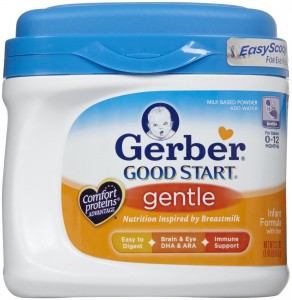 Top Class Action Lawsuits
Top Class Action Lawsuits
Amazon not Ready for Prime Time? Amazon’s Prime Now “Instant gratification market” is great for everyone but the delivery guys, according to a lawsuit filed against the online retailer this week. Amazon got hit with a proposed employment class action lawsuit filed by drivers delivering its products, specifically, drivers delivering goods within two hours of being ordered through Amazon’s “Prime Now” app.
According to the lawsuit, the drivers have been classified by Amazon and the companies providing services to Amazon as independent contractors. Ok—who doesn’t know this one by chapter and verse….Predictably, the drivers allege that have been misclassified.
According to their lawsuit, they deliver tens of thousands of items to Amazon’s Prime Now customers based on orders placed on Amazon’s Prime Now mobile app, which is aimed at what is referred to as the “instant gratification market.” But everything has its price.
So, to cut to the chase, the Amazon Prime driver complaint, filed October 27, 2015, in Los Angeles County Superior Court names Amazon.com, Inc., Scoobeez Inc., and ABT Holdings, Inc. as defendants. The four named plaintiffs asserts that they and others similarly situated to them were hired by Scoobeez, a courier company operated by ABT Holdings, to work exclusively for Amazon.com’s Prime Now two-hour delivery service in Orange County, California.
The specific allegations are that the app suggests a $5.00 tip for drivers (which they claim they have not received in whole or in part); that the drivers receive multiple days of training in making Amazon Prime Now deliveries; that they are scheduled to work fixed shifts, arrive at a designated warehouse ahead of the shift time and check in with a dispatcher; that they are sent home if there is not enough work for them; that they cannot reject work assignments or request particular geographical areas; that they must follow specific rules or instructions and are subject to discipline or termination if they do not; that they are required to deliver packages in a set sequence determined by the defendants; that the Prime Now app generates routes and directions; that they cannot deliver packages either two minutes too early or too late; that they are required to ask customers to fill out customer surveys; that the rates are unilaterally determined by the defendants, who reserve the right to change the compensation terms at any time; and that the delivery drivers are required to use their own vehicles and pay for their own vehicle and transportation expenses.
The plaintiffs claim violation of an array of state laws governing employees, including those requiring the payment of minimum wages, overtime, reporting pay, expense reimbursement, and meal periods, all of which they claim entitlement to because they are allegedly employees and not actually independent contractors.
The case is Truong v. Amazon.com, Inc., No. BC598993 (Cal. Sup. Ct. Los Angeles County, Oct. 27, 2015).
Top Settlements
Anthem Blue Cross caught with their pants down… has agreed to an $8.3 million settlement ending a bad faith insurance class action. The settlement could affect some 50,000 California customers.
The Anthem Blue Cross settlement will resolve two lawsuits that were filed by Anthem policy holders in 2011, alleging the state’s largest for-profit health insurer increased annual deductibles and other yearly out-of-pocket costs on individual policies in the middle of the year, which was a breach of contract and represented unfair business practices.
The lawsuit states that, in the case of plaintiff Dave Jacobson, the rate hikes amounted to a yearly out-of-pocket maximum increase from $5,000 to $5,850. His annual prescription drug deductible increased to $275 from $250.
According to the terms of the settlement, Anthem Blue Cross will mail notices to affected customers and to post information about the agreement on a public website. Only consumers affected by the midyear policy changes will receive settlement checks, but all Californians enrolled in individual Anthem health plans will be subject to the agreement that prevents such cost increases in the future.
Checks will be mailed in December to 50,000 consumers. The average amount will be $167. The four named plaintiffs in the court case will receive an additional $10,000, subject to court approval. So, watch the mail folks.
A fair shake for Pharmacists… in the guise of a $7.46 million settlement recently agreed in an unpaid overtime lawsuit pending against CVS Pharmacy. The settlement will end claims made in three separate but related class action lawsuits that CVS failed to pay overtime wages; failed to provide timely, accurate, itemized wage statements; failed to pay earned wages upon discharge; conversion; and unlawful and/or unfair business practices in violation of California labor law.
The CVS lawsuit asserts that pharmacists who work more than six days in a row are entitled to overtime pay for work beyond the sixth day, regardless of how CVS defines its work week.
The CVS settlement effects all persons who are or were employed by CVS as non-exempt pharmacists in Regions 54, 65 and/or 74 in the State of California, and who worked more than six consecutive days of work without overtime pay from October 2, 2009 through April 30, 2015 (Connell, Region 65), October 4, 2009 through April 30, 2015 (Paksy, Region 54), and October 29, 2009 through April 30, 2015 (Bystrom, Region 75).
A separate settlement was reached in a similar class action lawsuit (Rimanpreet Uppal v. CVS Pharmacy Inc.) involving California’s Region 73.
Class Members will be paid based on the number of “Compensable Workweeks” in which they worked more than six consecutive days without overtime pay.
Despite denying the allegations, CVS agreed to settle the class action lawsuits to avoid the risk and expense of proceeding to trial. KA-Ching… better to pay your staff… right? Now that’s money well spent.
Ok – That’s a wrap folks… See you at the Bar!




